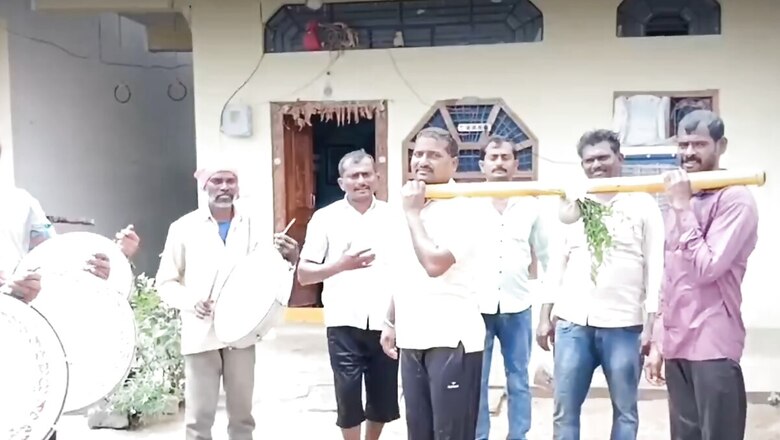
views
Indian traditions and cultures are not only amazing and fascinating, but sometimes they can be considered bizarre by many. We are all familiar with the story of a princess kissing a frog who magically transforms into a handsome prince, leading to their happily ever after. But have you ever imagined a marriage ceremony between a male frog and a female frog, complete with all the rituals and customs? Surprisingly, this unusual tradition is still practised in India today.
India is a land of diverse climates, ranging from harsh cold winters to summer monsoon rains that are crucial for watering its crops. However, what happens if the rain fails to arrive on time and the crops are at risk of being destroyed? To appease the Rain God, the people of Tippapur village, located in the Vemulawada municipal area of the Rajanna Sircilla district in Telangana, recently organized the wedding of a pair of frogs.
Although the region has witnessed some rain and agricultural work needs to commence, there is a looming concern that the soaring heat may destroy the crops within 22 days. In the past, if the area experienced a delay in rainfall, the farmers used to perform a traditional ritual called Kappathalli and pray to Lord Varuna, the Rain God. If their prayers were answered and rain fell, the farmers would celebrate with joy, as it meant a healthy crop harvest for the season. However, if the rain still failed to come, the farmers embraced the Kappathalli ritual, which has been passed down through generations. As part of the ritual, the frogs are wrapped in dung and released into a pond outside the village. The farmers believe that this act will please Lord Varuna, who will then bestow abundant rain upon them.
It is worth noting that a similar ritual took place last month in the Surashettikoppa village of the Kalghatgi taluk in the Dharwad district of Karnataka.
These unique traditions demonstrate the deep-rooted belief systems of the Indian people, who hold a strong connection to their cultural practices. While these rituals may seem unconventional to some, they continue to be upheld and passed on as a way to seek divine intervention and ensure the well-being of their crops and livelihoods.
















Comments
0 comment